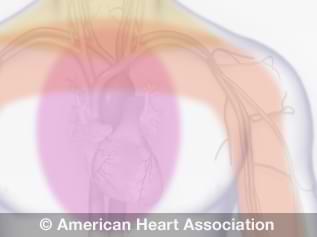Refractory Angina
Quick Facts
- Refractory angina is long-term chest pain doesn’t get better with medication and surgery.
- Treatment varies for each person.
Refractory angina is long-term chest pain that doesn’t get better after medication and surgery. The number of people with it is rising. This is in part because more people with coronary artery disease are living longer.
Symptoms
Angina is chest pain or discomfort caused by the heart not getting enough oxygen-rich blood. It may feel like:
- Pressure or squeezing in your chest
- Pain that spreads to your shoulders, arms, neck, jaw, stomach or back
- An upset stomach
- Shortness of breath or feeling very tired (even without pain)
You may have refractory angina if your chest pain lasts for more than three months and doesn’t improve with:
- Medications
- Bypass surgery
- Stents (small tubes placed in the arteries)
See an illustration of angina.
Treatment
People with refractory angina still have chest pain even after treatment. More treatment is needed for better quality of life.
Treatment is different for each person. Options may include:
- Medications
- Surgery or procedures to improve blood flow
- Less invasive treatments that may help some people, such as:
- Cardiac shockwave therapy
- Neuromodulation
- Gene therapy
- Cell therapy
- More invasive treatments, such as:
- Coronary sinus reducer
- Transmyocardial laser revascularization
Your health care professional will choose the best treatment option based on your needs.






